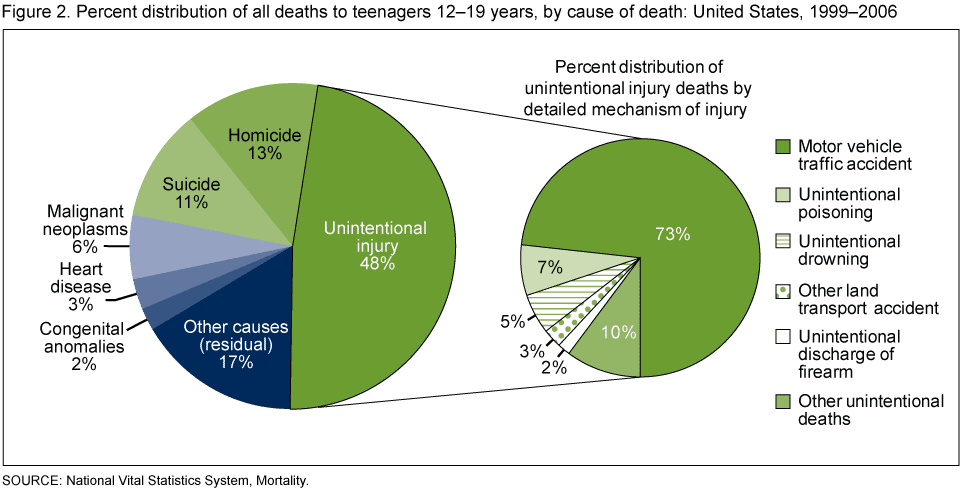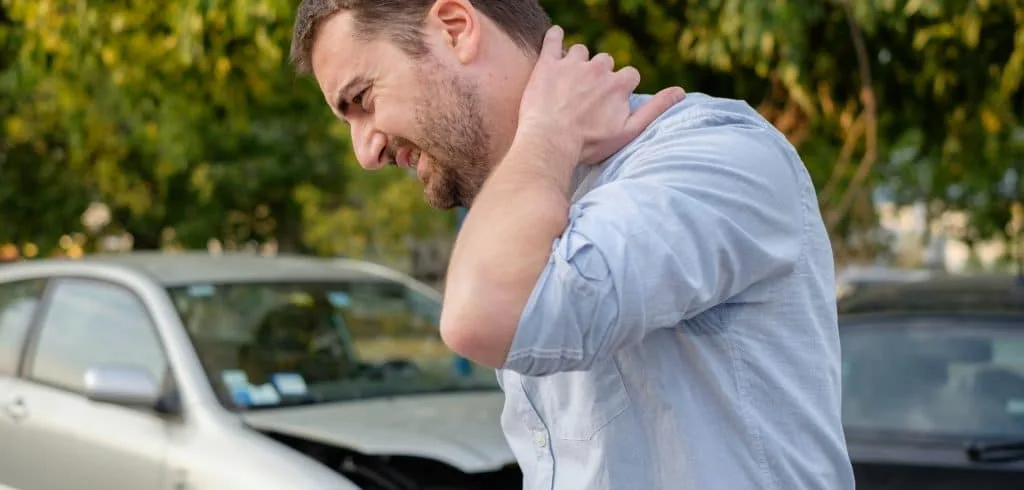What are Texas Teen Driving Laws?
Of course, all drivers must obey all of the laws and restrictions when they operate a motor vehicle on a public roadway. However, teen drivers have more laws and restrictions to follow than any other age group, and with good reason. According to the Centers for Disease Control and Prevention and the National Center for Health Statistics, the five leading causes of death among teenagers are Accidents (unintentional injuries – 48%), homicide (13%), suicide (11%), cancer (6%), and heart disease (3%). Accidents account for nearly one-half of all teenage deaths. As a category of accidents, motor vehicle traffic accidents comprise 73% and is the leading cause of death to teenagers.
As such, in Texas there are additional driving laws that teens must adhere to which are specifically designed to reduce the number of teen car accident deaths. It is imperative that both parents and teens understand the restrictions placed on teen drivers and the penalties involved with violating a restriction.
Legal Age for Teens to Drive In Texas
Texas teens start learning how to drive through a multi-stage procedure. During the process teens first obtain a “learner license”. At age 15, teens enrolled in a Graduated Driver Licensing (GDL) program can apply for a learner license in the state of Texas.
If the teen has had learner license for at least 6 months and successfully completed the required Graduated Driver Licensing (GDL) program, along with passing the written exam, a teen in Texas is legally allowed to obtain a provisional license at 16 years old.
The Texas Graduated Driver License Program
The Texas GDL program allows teens to safely gain driving experience before obtaining full driving and includes three stages:
- Learner Stage:supervised driving, cumulating with a driving test;
- Provisional Stage:limiting unsupervised driving in high risk situations; and
- Full Privilege Stage:a standard driver’s license.
According to the Texas Department of Public Safety, the Texas Graduated Driver License (GDL) program was implemented January 1, 2002 to give new drivers the chance to improve their driving skills over time in lower-risk environments.
Phase One (Learner License)
Teens who are under 18 years of age must hold a valid learner license (or a minor restricted driver license) for a minimum of six months prior to the issuance of a provisional driver license.
Teens must pass a written driver’s knowledge test, a sign recognition test and a vision test to receive a learner license. With a learner license, teens may only drive with a licensed driver age 21 or older supervising and sitting in the front seat. In addition, to receive a learner license, the teen must be enrolled in a Graduated Driver License (GDL) program.
Phase Two (Provisional License)
Phase Two restricts the driving privileges of teens who are under 18 years of age. Once the applicant has held a valid learner license or hardship license for a minimum of six months, reached the age of 16, completed both the classroom and behind-the-wheel portions of driver education, and completed the Impact Texas Drivers (ITD) requirement, they are eligible to take the driving test for their provisional license and “graduate” to Phase Two of the Graduated Driver License Program.
Texas law requires that courses include 32 hours of classroom instruction with 30 hours of supervised drive time behind the wheel. Teens at least 16 years of age that successfully completed of a teen driver education course will be eligible to take the driving test. Upon viewing the required Impact Texas Drivers (ITD) Video and receiving a passing score on the driving test the teen may be issued a provisional license.
These individuals may driver alone, but may not drive a motor vehicle:
- With more than one passenger in the vehicle under the age of 21 who is not a family member.
- Between midnight and 5:00 a.m. unless the operation of the vehicle is necessary for the driver to work, to attend or participate in a school-related activity, or due to a medical emergency.
Individuals who are under 18 years of age are restricted from using a wireless communication device, including a hands-free device, until they reach the age of 18, except in the case of an emergency.
Restrictions on Teen Drivers
With a learner’s license restricts, a teen is restricted to operating a vehicle only with licensed driver age 21 or older supervising and sitting in the front seat. Adult supervision is required.
A provisional license allows a teen at the age of 16, to operate a vehicle without the need for adult supervision. However, as provided above, there are specific restrictions placed on drivers with provisional licenses. Teen drivers with a provisional license CANNOT:
- Have more than one passenger under 21 in the car who is not a family member;
- Use wireless communication while driving unless there is an emergency; and
- Drive between midnight and 5 a.m.
Once a teen turns 18, the restrictions are lifted.
If these limitations are observed during the six-month period following the provisional license issuance, the student may visit the appropriate Department of Motor Vehicle (“DMV”) office and have these restrictions removed. Convictions of traffic offences or failure to observe the above requirements may result in provisional license suspension or revocation.
In addition, teens that violate any of the restrictions placed on a provisional license may face fines or license suspension if caught. Texas also operates under a Zero Tolerance law for minors. It is considered a criminal offense for any person under 21 to have a detectable amount of alcohol in their system while operating a motor vehicle on a public road.
Teen Road Safety
According to the National Highway Traffic Safety Administration teen drivers rarely crash while they are being supervised by adults, but they have the highest crash rates of all age groups during the first six months of unsupervised driving. As such, although at first glance the restrictions on teen drivers may appear a little strict, they are necessary to keep our Texas teens and roadways safe.
Chandler | Ross is Here When An Accident Occurs
If you’ve been involved in an accident with a teen driver, or your teen has been involved in an accident, Chandler | Ross is here for you. Our attorneys will fight for all those who have been injured in an accident in Texas, regardless of the severity of injuries. We can investigate the accident and build you a strong case that will ensure you receive the compensation you deserve.
With offices in Denton, Dallas and Fort Worth, Texas, Chandler | Ross, PLLC and our Car Accident Attorneys are well positioned to provide the most effective, experienced and highly-skilled representation possible with a convenient location near you. Our experienced Denton/Dallas/Fort Worth Car Accident Attorneys can quickly respond to an accident, gather necessary information and preserve evidence in order to maximize your chances of recovery. Don’t wait, and don’t compromise – contact us today to see how we can help you. In most cases, you pay nothing unless we are able to settle your case or win a verdict. Our consultation is free. Contact us now at (940) 800-2500 or support@chandlerrosslaw.com to schedule your free car accident case evaluation and consultation.



